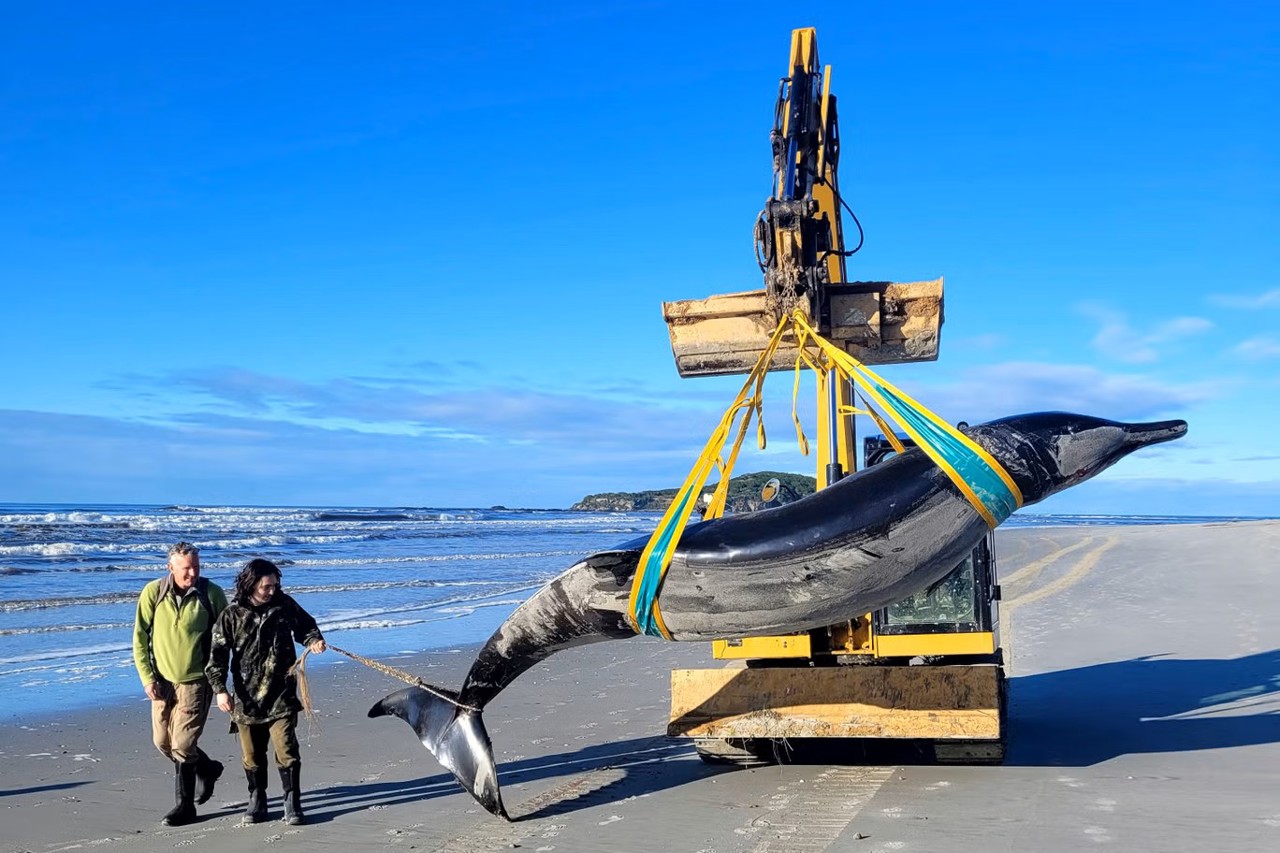Rare Whale Discovery in NZ: A Scientific Goldmine
An incredibly rare beaked whale, believed to be a Mesoplodon traversii, washed ashore on a beach in Otago, New Zealand.

This discovery has the potential to be a game-changer for scientists studying these highly mysterious marine mammals, according to The Independnent..
The five-metre long whale was identified by its unique colour pattern and the distinctive shape of its skull, beak, and teeth.
"We know almost nothing about these creatures," said Hannah Hendriks, a marine technical advisor at the Department of Conservation. "This discovery has the potential to revolutionise our understanding of them and lead to groundbreaking scientific research."
If confirmed as a spade-toothed whale, this would be the first well-preserved specimen ever found. Such a discovery would allow scientists to dissect the animal and unlock the secrets of its evolutionary relationship to the few other known individuals of this species.
Only six other spade-toothed whales have been identified previously, and specimens found intact on beaches in New Zealand's North Island were unfortunately buried before DNA tests could confirm their identification. This time, however, the stranded whale was quickly transported to cold storage. Researchers will now collaborate with local Māori tribes to determine the most appropriate way to examine the specimen, the Department of Conservation announced.
New Zealand's indigenous people consider whales to be taonga, sacred treasures of great cultural significance. In April, Pacific indigenous leaders signed a treaty recognizing whales as "legal persons," although this declaration has no legal bearing within the participating nations.
The habitat of these whales remains a complete mystery. These elusive creatures dive deep to feed and likely surface so rarely that their exact location has proven impossible to pinpoint. However, scientists do know that they inhabit the South Pacific Ocean, home to some of the deepest ocean trenches on Earth, explained Hendriks.
"Studying marine mammals is incredibly challenging when you can't observe them in their natural habitat," she said. "It's akin to searching for a needle in a haystack. We simply don't know where to look."
New Zealand is a global hotspot for whale strandings, with over 5,000 recorded episodes since 1840, according to the Department of Conservation. The agency anticipates that genetic testing to confirm the whale's identification could take several months.
"Identifying these incredibly cryptic mammals has taken many years of dedicated effort from researchers and local communities," said Kirsten Young, a senior lecturer at the University of Exeter who has studied spade-toothed whales. "This recent discovery compels us to ask: how many more of these whales exist in the deep ocean, and what can we learn about their lives?"
The first spade-toothed whale bones were discovered in 1872 on Pitt Island in New Zealand. Another discovery was made on an offshore island in the 1950s, and the bones of a third whale were found on Robinson Crusoe Island in Chile in 1986. DNA sequencing conducted in 2002 confirmed that all three specimens belonged to the same species, distinct from other beaked whales.
Researchers studying the mammal were previously unable to definitively determine whether the species was extinct. Then, in 2010, two deceased spade-toothed whales washed ashore on a New Zealand beach. Initially mistaken for one of the more common beaked whale species found in New Zealand, tissue samples taken after they were buried ultimately revealed them to be the enigmatic spade-toothed whale.
Translation by Iurie Tataru





